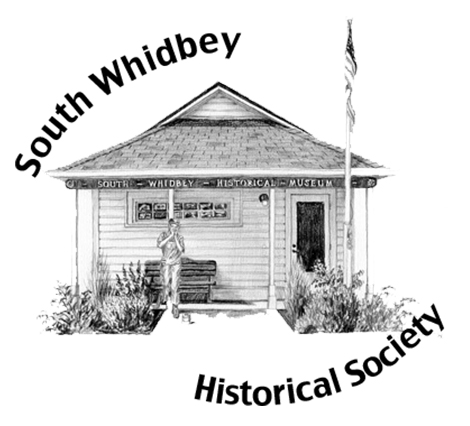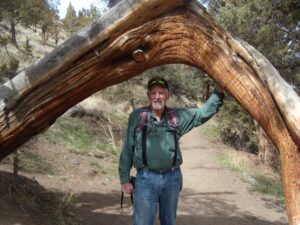What did young people do with their time before TVs, smart phones, computers, video games and other devices were available?
Former resident Dick Bryant shared the following account he wrote about growing up on South Whidbey. We very much appreciate such reminiscences, and are happy to share them with our readers.
————
We lived at Cultus Bay during the 1940s. This would have put me between the ages of 5 and 15. In 1940 and ’41 we lived off the Island so my Dad could find work. We came back in ’42 and I started the second grade in the new brick Langley Grade School (later Langley Middle School and now the South Whidbey Community Center).
Whidbey was an interesting place at this time. WWII had started and there was a lot of military activity. There was rationing, so certain food items were scarce as was gasoline. I lost my favorite uncle during the last days of the war.
Most families lived on small farms. A lot of South Whidbey families knew one another through various community activities.
There were things expected of us when it came to family responsibilities. We were coming out of the Great Depression and had little money.
Our family lived on a small acreage and were able to raise livestock. The ground was fertile, so we had vegetables along with pickings from my uncle’s fruit trees. Living near the Sound, provided us with plenty of seafood.
Because of a semi-subsistence living environment it meant that we learned early to contribute our labor to make the family unit function.
What were a few of the chores we were expected to perform? The house, and water were heated by wood, and Mom cooked on a wood-fired stove.
Wood came from several different sources. We had timber on the back of our property. Dad would fall a tree then my brother and I would buck off rounds with a cross cut saw which we would split for use. Most of the time Dad would buy slab wood from one of the local sawmills, and we would stack, split and bring to the wood box on the back porch.
We learned early on to do the dishes. The family always had a milk cow and at least one beef steer. That meant putting up winter hay. Our part of the hay harvest was always done by hand with a pitchfork. We also had chickens and a couple of pigs.
Chickens were easy keepers. Just throw out some chicken scratch, gather the eggs and clean the coop. Table scraps, unused milk and some grain went into a 55 gallon drum which became hog food. We fed the pigs or, as we termed it, “slopping the hogs.”
Gardening was a pretty time-consuming task in the summer. Dad would prep the soil and we kids helped plant and did a lot of the weeding.
Probably the worst task I remember was removing livers from dogfish. I don’t care to describe that process.
We did get to repair the nets, and other net maintenance which was kind of interesting. Yard work was not a factor as we never had one. There was the garden, berry bushes, some flowers and a cottonwood tree in the back yard. No grass. We did have an outhouse so we would occasionally have to dig a new pit.
That’s a brief overview of the things that were expected of us. The rule was; “when chores are done you are free to do as you please, just be home for dinner.”
There were quite a few neighbor kids within walking distance, so during the summer we would meet up, plan the day and then we were gone.
Here are some of the things we did to keep ourselves out of trouble. We lived a short distance from Cultus Bay, so a lot of summertime was spent there. 100 yards, or so, across the bay was a nice beach we called the sand spit. Lots of swimming when the tide was in.
One time we chose up sides, and each team built a fort out of drift wood. Close by was great spot to make mud balls. After having enough ammo stockpiled in our respective fort, we proceeded to have a rousing mud ball fight.
We spent hours beachcombing and usually found something interesting. If we felt like putting on a few miles we would hike to the docks at either Possession or Glendale and fish for perch. Once in a while we would fish for cutthroat trout out of Glendale Creek and the beaver ponds further upstream.
Every summer we would do at least one campout on the beach over on the west side of the bay. We were well away from any houses, so a large bonfire and a lot of noise didn’t seem to bother anyone. We would bring some food, get my older brother to get us a pack of cigarettes and off we would go. That spot is all houses today.
There were a lot of pickup baseball and football games in one of the neighbor’s pastures. Games that are probably not even heard of today were played. “Red Rover, and Anti I Over” were two that I can remember. After the war we could buy fireworks. We always bought things that would explode, so we had to find ways to extract the most pleasure from our stash. One time I wanted to see what would happen if I put a firecracker in a fresh cow pie. I lit it up then stood over it to observe. I didn’t do that again.
We always looked forward to an occasional winter snow. Schools generally shut down for a few days which gave us time to do a lot of sledding. One time we conned the local community club into letting us roller skate in the old Ingleside community hall. All was well until we got carried away with our antics and began to tear up the floor. They promptly kicked us out.
Our house was good-sized and centrally located, so kids gathered at our place during rainy weather. We played Monopoly, Chinese checkers, regular checkers and we honed up on our poker skills, playing for matchsticks, We had tinker toys, Lincoln logs and an erector set from various Christmases, so many winter days were spent putting all kinds of structures together.
Some of our activities required having money. We didn’t get an allowance, so if we wanted most things beyond what our parents could provide, we would have to earn our own spending money. Our main source of revenue was picking berries.
With our earnings, we could buy refreshments at Baileys Corner store, purchase fireworks, or pay our way into a movie at Clyde’s Theater if we could get a ride into town.
All in all I remember these times as being well balanced. We lived in a beautiful part of the country, learned responsibilities, got a good education, were well cared for, learned a lot of life lessons, and had some fun times with our neighbor kids. I wouldn’t have traded it for anything.
–Dick Bryant

